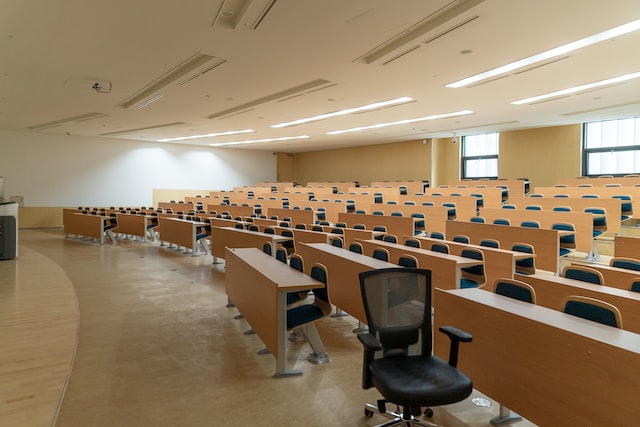The biggest problem in education today is the gap between the haves and the have-nots. Children from wealthy families have access to great schools, tutors, and opportunities that children from poor families do not. This results in a vicious cycle where children from poor families end up getting lower grades and are less likely to go to college, perpetuating the socioeconomic divide. However, there are ways to close this gap, such as improving public schools and providing more resources for low-income students. With hard work and dedication, we can ensure that all children have an equal chance at getting a quality education.
The decreasing value of a college degree
In recent years, the value of earning a college degree has been declining due to increasing costs and a struggling economy. It is becoming increasingly difficult for higher education institutions to justify the investment in credentials with research paper writing and other classes that don’t easily translate into real-world career skills. Furthermore, research studies have found that employers now place higher importance on skills developed in internships and other career experience than on degrees from accredited universities – contributing to the already high tuition fees and decreasing value of a college degree.
The high cost of tuition and student loans
The high cost of tuition has created a huge financial burden for many students and young adults. College tuition fees have been steadily rising over the last decade, making it difficult for the average person to afford post-secondary education. Those that do attend college often rely on student loans to cover their expenses, turbocharging the debt accrued by students once they join the workforce. To make matters worse, many universities are responding to this situation by cutting back financial aid instruments and increasing living costs like board or lodging. This is creating an impossible situation in which even those with scholarships have an incredibly difficult time covering college-related expenses. All these obstacles facing our youth can lead to them foregoing higher education altogether; a reality that has significant implications for our society as a whole.
The difficulty of getting a job after graduation
Graduating from college can be both thrilling and daunting, especially when it comes to finding a job. The job market is often unpredictable and fiercely competitive, making it difficult for recent graduates to stand out amongst the other candidates. Many employers seek work experience within an industry, yet most entry-level positions require previous experience. This creates a vicious cycle since employers are reluctant to offer initial opportunities. Furthermore, many high-skilled or specialized positions necessitate job seekers to have several years of shadowing experience in addition to their college degrees. This means that graduates must find ways to differentiate themselves from the competition and consequently differentiate their resumes from one another as well in order to succeed in the job hunt after graduation.
The pressure to succeed in school
Knowing the pressure to succeed in school can be overwhelming, especially when competing with peers. It’s important to remember that everyone has their own definition and timeline of success; what is right for one may not fit another’s needs. Instead of pushing oneself to ‘keep up’ with others, focus on small successes to develop enduring confidence. Whether it’s taking the time to appreciate academic achievements or setting achievable goals, creating a unique path toward success allows a person to reach their highest potential without excessive stress or burnout.
The competition among students
The competition among students has become increasingly fierce. As students strive to outshine each other, they take on more and more extra-curricular activities and dedicate countless hours to honing their academic skills in order to stand out from the crowd. The resulting passionate drive can work wonders and see them rewarded, but it’s also important to remember that success isn’t defined by outward, quantifiable achievements alone. Taking time off for self-care and relaxing activities is equally important, helping to create a healthy balance and prevent burnout. To really move ahead in life, it’s a combination of both hard work and relaxation that will ultimately make all the difference.
It is no secret that the value of a college degree has been decreasing in recent years. With tuition rates rising and the job market becoming more competitive, many students are left feeling pressure to succeed in school. However, for some students, the cost of tuition and student loans may be too high. As a result, many students are finding it difficult to get a job after graduation. While a college degree is not necessary for success, it is still an important factor in achieving one’s goals. If you are considering going to college, weigh your options carefully and consider all factors before making your decision.
